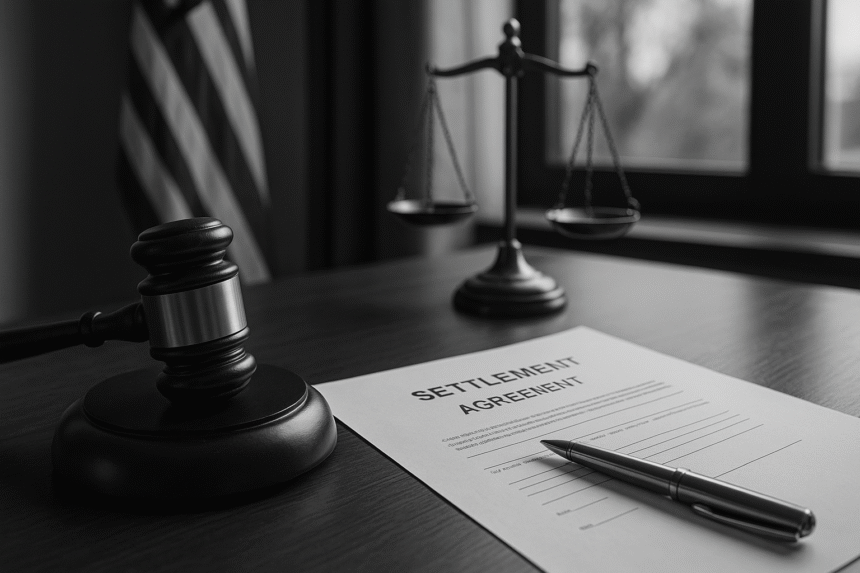Settlements can seem like the fastest way to resolve a legal dispute. But accepting a settlement draft too quickly—without asking the right questions—can cost your business more than you think.
A poorly structured settlement draft might leave you exposed to future claims, unclear payment timelines, or obligations you didn’t anticipate. That’s why every legal professional or founder should have a checklist ready before signing anything.
In this article, we’ll walk you through 5 key questions we ask before accepting a settlement draft—to protect your rights, secure your position, and prevent unpleasant surprises later.
Who This Is For / Why This List Matters
This list is designed for:
-
Business owners dealing with a commercial dispute
-
Consultants and freelancers resolving client payment issues
-
Legal professionals reviewing settlement agreements
-
Founders negotiating out-of-court resolutions
Use this guide when:
-
You receive a settlement draft from the opposing party
-
You’re preparing your own settlement offer
-
You want to minimize legal risk while closing the dispute
1. Does the Settlement Cover All Claims—Past, Present, and Future?
One of the most overlooked issues in settlement agreements is scope. Many drafts only settle the immediate issue (like unpaid invoices) without fully releasing all related or future claims.
✅ Why this matters:
Let’s say you settle a late payment dispute. Later, the same client sues you for project delay damages—because the original agreement didn’t waive that.
📝 What to do:
Always ensure the draft contains a mutual release clause that covers known and unknown claims. Check if it includes language like:
“The parties release each other from all claims arising out of or in connection with the subject matter of this dispute.”
✅ Bonus: Make sure it applies to affiliated parties, successors, and assigns.
2. Is There a Clear, Enforceable Payment Timeline?
Many businesses rush to sign settlement draft agreements with vague or informal payment terms. This opens the door to delays, disputes, or even non-payment.
✅ Why this matters:
A client agrees to pay “within 30 days”—but doesn’t. You go back to court, only to realize the agreement lacks enforcement triggers.
📝 What to do:
Look for a payment clause that includes:
-
The exact amount payable
-
The payment deadline (specific date, not “30 days”)
-
The payment method (e.g., wire transfer, escrow)
-
Late penalties or interest if delayed
Make sure there’s also a default clause allowing you to enforce the agreement or reinstate claims if they breach the terms.
3. Is Confidentiality Clearly Addressed?
Many disputes involve sensitive financial, reputational, or operational details. A settlement should protect that confidentiality.
✅ Why this matters:
Without a confidentiality clause, either party can publicize the dispute outcome, harming your brand or position in future deals.
📝 What to do:
Look for a standalone confidentiality clause that covers:
-
The existence of the settlement
-
The contents of the agreement
-
The facts surrounding the dispute
Tip: If public disclosure is required by law (e.g., for shareholders), ensure the clause allows limited disclosure under those conditions.
4. Are There Any Admissions of Liability or Fault?
Some settlement drafts sneak in language that can imply guilt—especially in employment, IP, or compliance matters.
✅ Why this matters:
Even a subtle phrase like “the contractor acknowledges the failure to deliver services” can be used against you later in unrelated matters.
📝 What to do:
Insert a non-admission of liability clause stating that:
“This settlement is entered into without any admission of wrongdoing or liability by either party.”
This helps prevent third parties (like regulators or future partners) from interpreting the agreement as an acknowledgment of guilt.
5. Is the Dispute Fully and Finally Resolved?
Even with mutual releases, some settlement drafts leave open questions—like future performance obligations or ongoing warranties.
✅ Why this matters:
You settle now, but six months later the other party demands additional services or support based on vague settlement wording.
📝 What to do:
Ensure there’s a clause confirming that the agreement:
-
Is a full and final settlement of the matter
-
Supersedes all prior agreements or obligations related to the dispute
-
Releases both parties from any future performance
You may also want to include a no re-litigation clause to block attempts to reopen the dispute.
🎯 Mini Case Example: Preventing Future Claims
A digital marketing agency accepted a fast settlement over a payment dispute—without reviewing the scope of release. Three months later, the client sued again, alleging “harm to brand reputation” during the project.
Because the original settlement only covered unpaid invoices and didn’t waive reputational claims, the agency was forced back into negotiation.
👉 Lesson: A general release clause upfront could have avoided months of stress and legal fees.
✅ Checklist: Questions to Ask Before Signing a Settlement Draft
-
❓ Does it release all claims, including future or unknown ones?
-
❓ Is the payment amount, deadline, and method clearly defined?
-
❓ Does it include a robust confidentiality clause?
-
❓ Does it avoid admissions of fault or liability?
-
❓ Does it clearly state that all obligations are resolved?
Closing Thoughts + Call-to-Action
Settlement agreements can save time and legal fees—but only if they’re airtight. These 5 key questions we ask before accepting a settlement draft help protect your business from future surprises, unpaid obligations, or reputational harm.
👉 Need help reviewing or drafting a safe, enforceable settlement draft?
Book a consultation with our legal team or download our free settlement checklist to avoid critical mistakes.



Leave a Reply